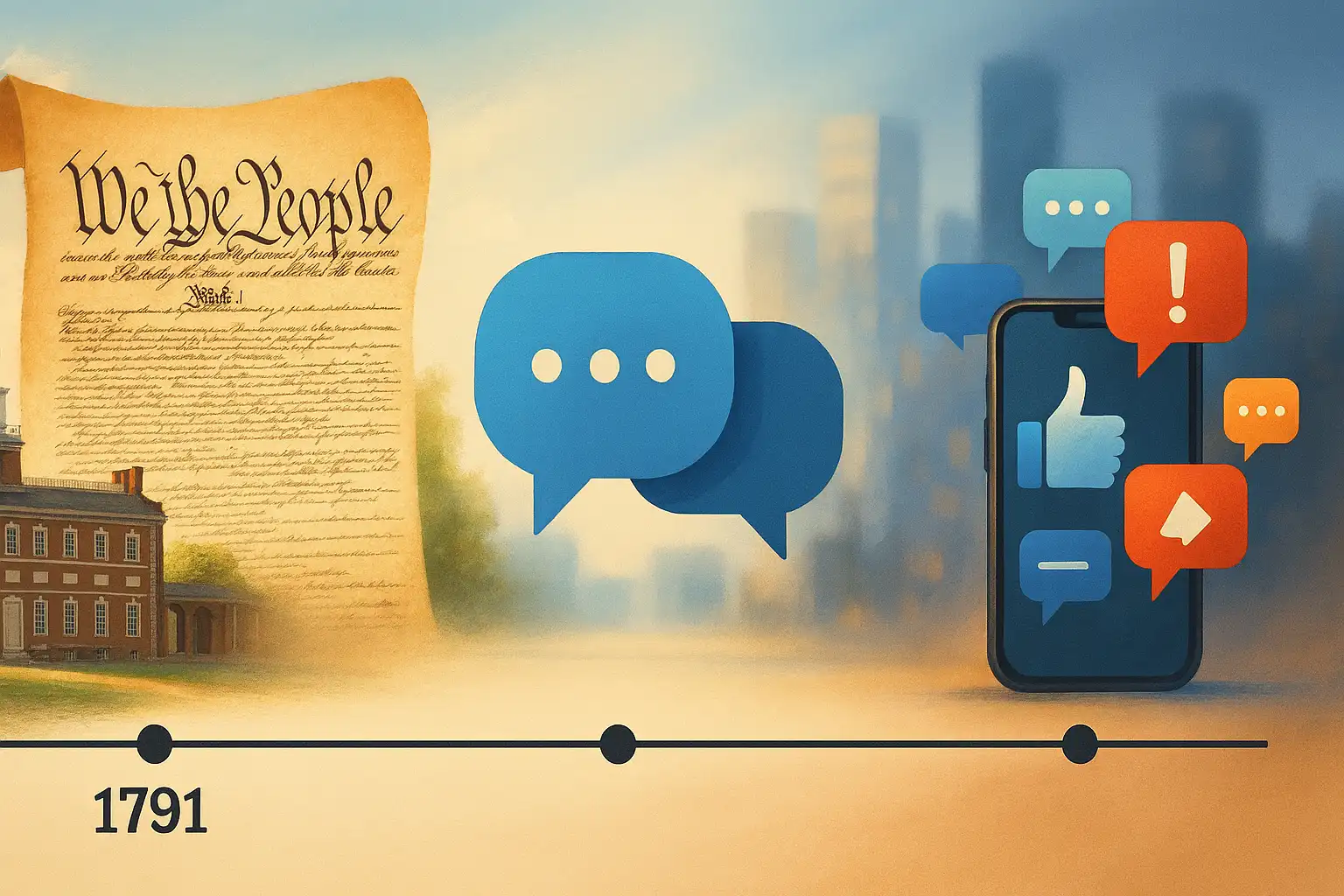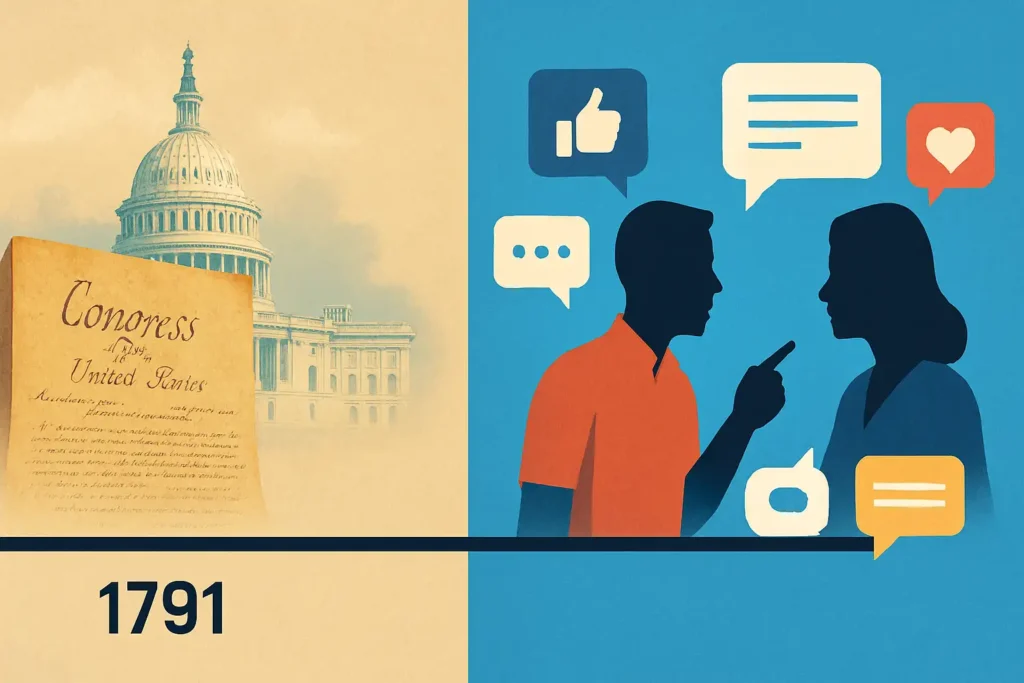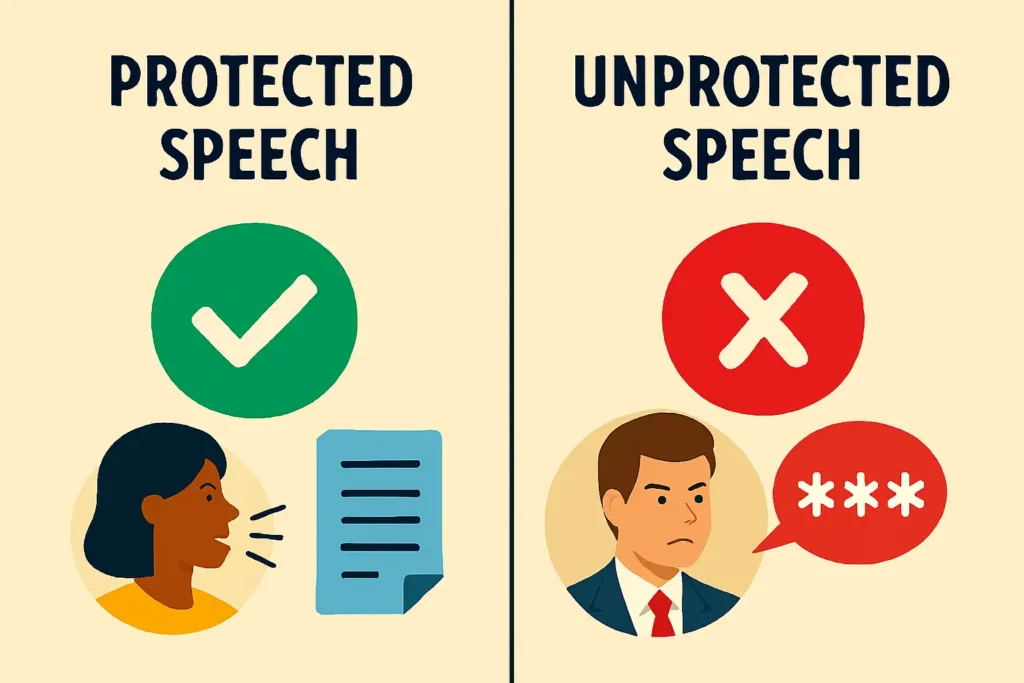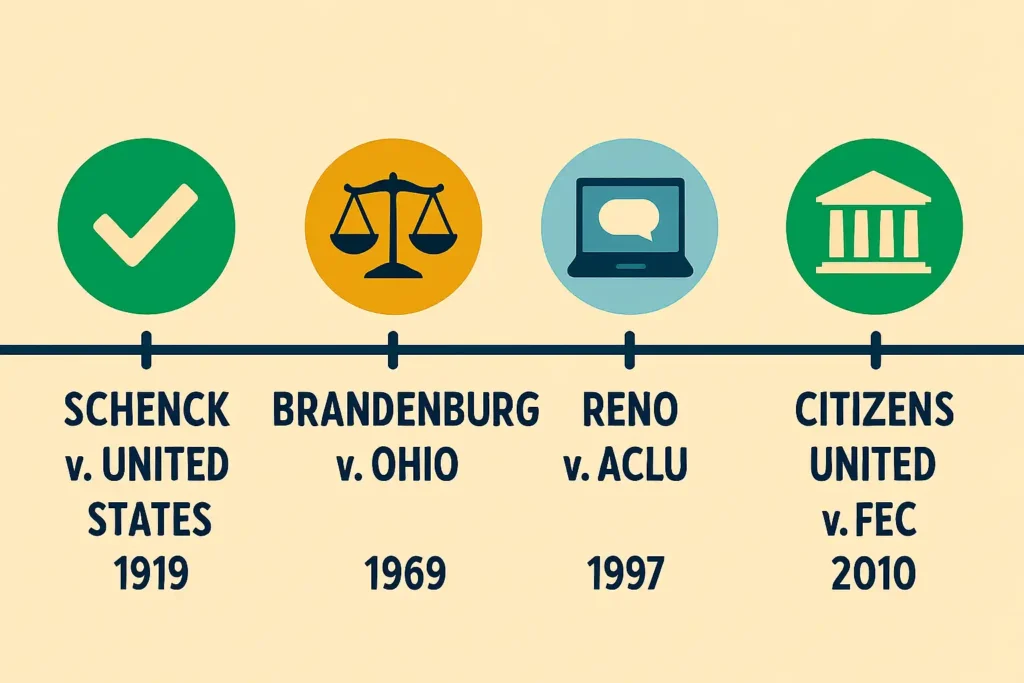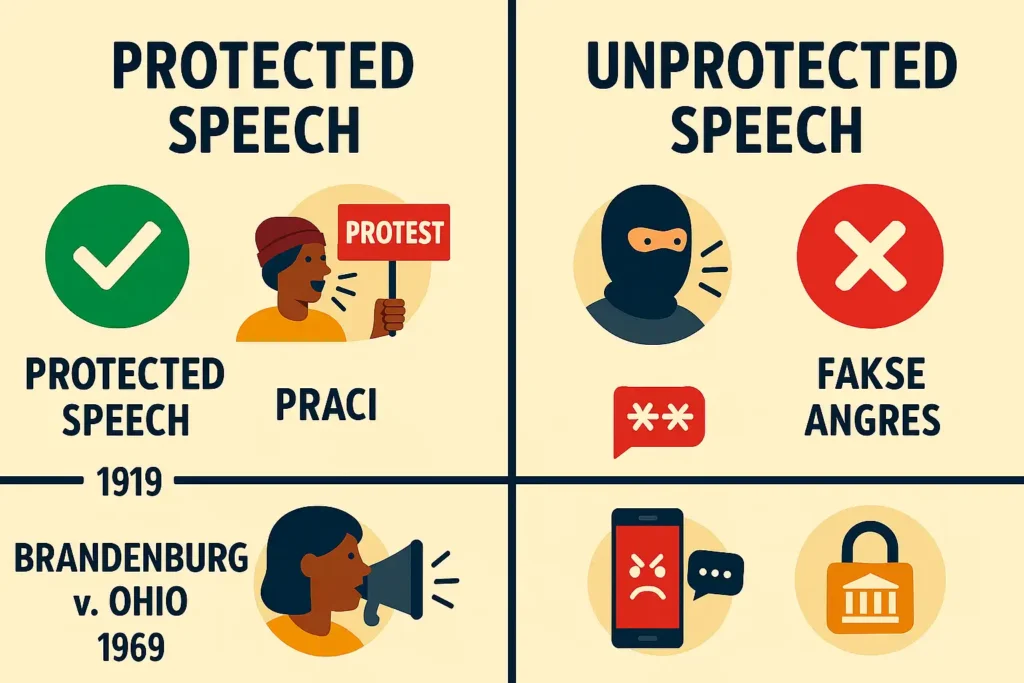The First Amendment often pops up in everyday conversations — from student protests to debates about what you can post on social media. Yet many people aren’t fully sure what it actually protects.
In this guide, you’ll discover the five freedoms it guarantees, the real limits on “free speech,” and landmark cases that shaped how courts interpret it today.
When I first dug into this topic, I realized I held some common misconceptions myself — like believing all speech is protected (spoiler: it’s not).
Here’s what I found…
Yes — the First Amendment protects five core freedoms: speech, religion, press, assembly, and petition. Certain speech like threats, incitement, or defamation is not protected.
3-Step Summary:
- Know your rights → Free speech, religion, press, assembly, petition.
- Understand limits → Speech threatening safety or defaming others isn’t protected.
- Learn from cases → Courts shape real-world application today.
Pro Tip: Check landmark Supreme Court cases to determine what counts as protected speech.
Stat: According to a 2023 Pew Research survey, 63% of Americans say protecting free speech is more important than preventing offensive content.
“What does the First Amendment protect?” → Speech, religion, press, assembly, and petition; excludes threats, incitement, and defamation.
1: What Is the First Amendment?
The First Amendment is part of the Bill of Rights, ratified in 1791, and it guarantees five essential freedoms: speech, religion, press, assembly, and petition.
In simple terms, it means the government cannot censor or punish you for expressing opinions, practicing your faith, publishing news, gathering with others, or asking leaders to fix problems.
📜 From the U.S. Constitution (Constitution Center):
“Congress shall make no law … abridging the freedom of speech, or of the press; or the right of the people peaceably to assemble, and to petition the Government for a redress of grievances.”
UGC Insight: Many Reddit users ask if this means “I can say anything I want.” Answer: It mainly limits government action, not private companies or workplaces.
2: The 5 Freedoms It Protects
The First Amendment guarantees five fundamental freedoms:
- Freedom of Speech → Express opinions without government punishment. (Example: Tinker v. Des Moines student protests.)
- Freedom of Religion → Practice any faith or none.
- Freedom of the Press → Publish news without government censorship.
- Right to Assemble → Peaceful gatherings and demonstrations.
- Right to Petition → Ask the government for change (letters, petitions, lobbying).
Quora users ask if online petitions count — yes, they are modern extensions of the right to petition.
3: What the First Amendment Does NOT Protect
The First Amendment does not allow all speech. Courts have defined exceptions:
- Threats & Incitement → Brandenburg v. Ohio
- Defamation (Libel/Slander)
- Obscenity & Child Exploitation → Miller v. California
- Commercial Misrepresentation
- Fighting Words → Speech provoking immediate violence
Calling your boss names at work isn’t protected — private employers can discipline you.
Table comparing protected vs unprotected speech.
| Protected | Not Protected |
|---|---|
| Political criticism | Threats of violence |
| Peaceful protest | Incitement to riot |
| Religious practice | Obscenity / child exploitation |
| Journalism | Defamation (libel/slander) |
4: Landmark Supreme Court Cases
Key cases shaping First Amendment law:
- Schenck v. US (1919) → “Clear and present danger” test
- Tinker v. Des Moines (1969) → Student protests protected
- NYT v. Sullivan (1964) → Press protection against libel
- Citizens United v. FEC (2010) → Corporate political spending = free speech
- Brandenburg v. Ohio (1969) → Incitement limits
Social media platforms are private; First Amendment limits government, not platforms.
5: The First Amendment in Today’s World
Modern applications include:
- Social Media & Free Speech → Platforms moderate content, government cannot.
- Student Rights → Protected unless disruptive.
- Protests & Assembly → Peaceful protests protected; unlawful actions are restricted.
- Press Freedom → Investigative reporting protected; defamation suits still apply.
Reddit debates often confuse platform rules with government restrictions.
| Scenario | Government Action? | Protected? |
|---|---|---|
| Student protest | Yes | Protected if peaceful |
| Twitter post banned | No | Not covered |
| Peaceful march | Yes | Protected |
| Threatening speech online | Yes | Not protected |
6: Why the First Amendment Matters Today
Reasons it matters:
- Protects Democratic Debate → Criticize policies without fear
- Supports Press Freedom → Investigative journalism informs citizens
- Encourages Civic Participation → Peaceful protests and petitions
- Balances Social Media Challenges → Guides free expression vs harmful content
Author Insight: Reviewing Reddit discussions, many misunderstand boundaries — knowing limits prevents legal and social issues.
Pros/Cons card.
| Benefits | Limitations |
|---|---|
| Protects free speech | Doesn’t cover private platforms |
| Empowers civic engagement | Limits exist for incitement & threats |
| Supports journalism | Misinterpretation is common |
7: FAQs on the First Amendment
Q1: What are the 5 freedoms? → Speech, religion, press, assembly, petition
Q2: Can I say anything? → No; threats, defamation, incitement, obscenity excluded
Q3: Does it apply to social media? → Limits government, not private platforms
Q4: Landmark cases? → Schenck, Tinker, NYT v. Sullivan, Citizens United, Brandenburg
Q5: Why important today? → Protects democracy, civic engagement, free press
Scooter Braun in 2025: Sydney Sweeney Rumors, Career, Controversies & Retirement
